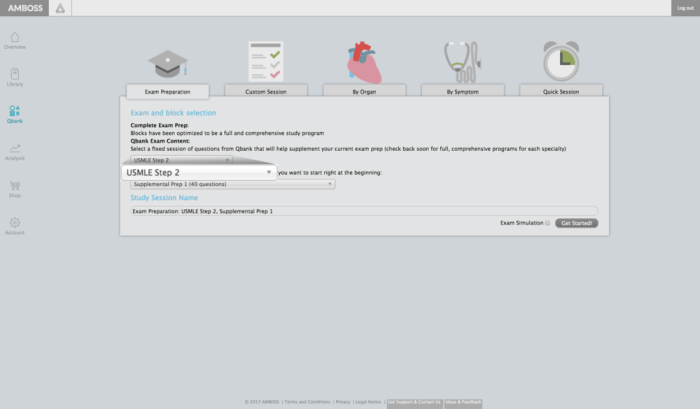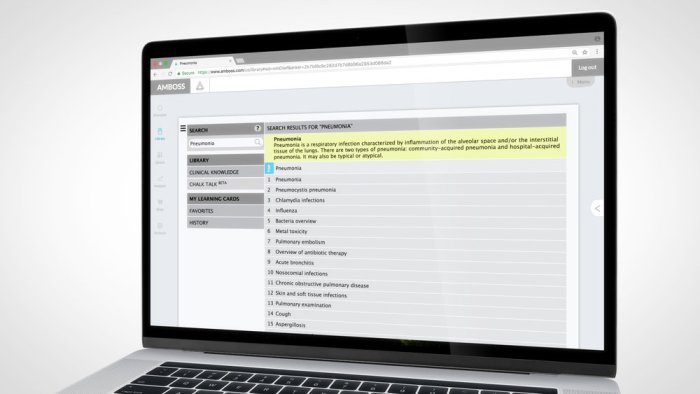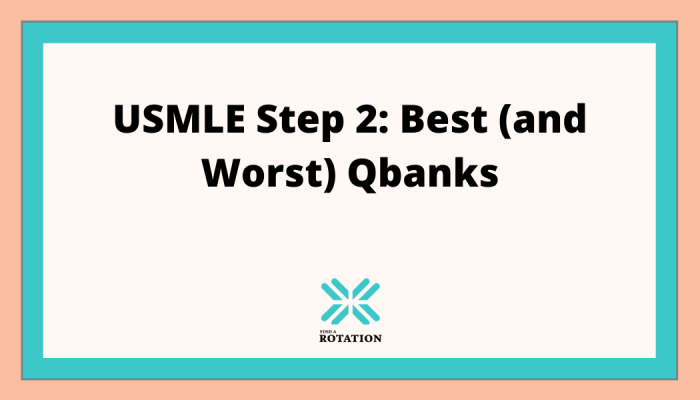Embark on an ethical journey with Amboss Ethics Step 2 PDF, a comprehensive guide that empowers medical professionals with the knowledge and tools to navigate ethical dilemmas with confidence.
This invaluable resource provides a structured framework for ethical decision-making, ensuring that every medical encounter is guided by sound ethical principles.
Introduction
Ethics plays a pivotal role in the realm of medical practice, guiding healthcare professionals in making informed decisions that align with the principles of patient well-being, autonomy, and justice. It provides a framework for navigating complex ethical dilemmas that arise in various clinical scenarios.Resources
such as Amboss serve as valuable tools in supporting ethical decision-making. They offer comprehensive information on ethical principles, case studies, and expert insights, empowering healthcare professionals to approach ethical challenges with a well-informed and nuanced understanding.
Ethical Considerations in Medical Practice
Medical ethics encompasses a wide range of considerations, including:
- Respecting patient autonomy and informed consent
- Ensuring patient confidentiality and privacy
- Addressing end-of-life care and decision-making
- Navigating conflicts of interest and maintaining professional integrity
li>Balancing the duty of beneficence (doing good) with the principle of non-maleficence (avoiding harm)
Amboss Ethics Step 2 PDF
The Amboss Ethics Step 2 PDF is a comprehensive resource that provides medical professionals with a structured and evidence-based approach to ethical decision-making in clinical practice.
The PDF is organized into several sections, each of which covers a different aspect of medical ethics. These sections include:
- Principles of medical ethics
- Patient autonomy
- Informed consent
- Confidentiality
- End-of-life care
- Ethical issues in specific clinical scenarios
Each section provides a detailed overview of the relevant ethical principles, as well as practical guidance on how to apply these principles to real-world situations.
Structure and Organization
The Amboss Ethics Step 2 PDF is organized in a user-friendly manner, with each section clearly labeled and easy to navigate. The PDF also includes a comprehensive index, which makes it easy to find specific topics of interest.
How the PDF Can Assist Medical Professionals, Amboss ethics step 2 pdf
The Amboss Ethics Step 2 PDF is a valuable resource for medical professionals who are seeking to improve their ethical decision-making skills. The PDF provides a comprehensive overview of the ethical principles that govern medical practice, as well as practical guidance on how to apply these principles to real-world situations.
Ethical Principles and Frameworks

Ethical principles and frameworks provide a foundation for ethical decision-making in medical practice. These principles guide healthcare professionals in making choices that respect patient autonomy, protect patient well-being, and uphold the values of the profession.
The Amboss Ethics Step 2 PDF covers several ethical principles, including:
- Autonomy:Respecting the patient’s right to make decisions about their own healthcare.
- Beneficence:Acting in the best interests of the patient.
- Non-maleficence:Avoiding harm to the patient.
- Justice:Ensuring fair and equitable distribution of healthcare resources.
These principles guide ethical decision-making by providing a framework for evaluating the potential benefits and harms of different courses of action. They help healthcare professionals make choices that are consistent with the values of the profession and that protect the rights of patients.
Ethical Frameworks
In addition to ethical principles, there are several ethical frameworks that can be used to guide medical decision-making. These frameworks provide a structured approach to considering the ethical implications of different courses of action.
Some common ethical frameworks include:
- Utilitarianism:Focuses on maximizing the overall good or happiness.
- Deontology:Emphasizes following rules and duties.
- Virtue ethics:Focuses on developing and practicing good character traits.
The choice of which ethical framework to use will depend on the specific circumstances of the case and the values of the healthcare professional.
Case Studies and Scenarios
The Amboss Ethics Step 2 PDF includes a comprehensive collection of case studies and scenarios that provide valuable opportunities for medical professionals to apply ethical principles to real-world situations. These case studies cover a wide range of ethical issues commonly encountered in medical practice, such as informed consent, confidentiality, end-of-life care, and resource allocation.
By working through these case studies, medical professionals can develop their critical thinking skills, enhance their understanding of ethical principles, and improve their ability to make sound ethical decisions in complex situations. The case studies also help foster empathy and compassion for patients and their families.
Analyzing and Resolving Ethical Dilemmas
The Amboss Ethics Step 2 PDF provides a structured approach to analyzing and resolving ethical dilemmas. This approach involves:
- Identifying the ethical issues: Clearly defining the ethical principles and values at stake in the case.
- Gathering relevant information: Collecting all necessary information about the patient, their family, and the medical situation.
- Considering alternative courses of action: Exploring different options for addressing the ethical issues, weighing their potential benefits and risks.
- Making a decision: Selecting the course of action that best aligns with ethical principles and the patient’s values.
- Evaluating the decision: Reflecting on the decision-making process and its outcomes to identify areas for improvement.
By following this approach, medical professionals can ensure that their ethical decisions are well-reasoned, patient-centered, and consistent with the highest ethical standards.
Legal and Regulatory Considerations

Navigating ethical decision-making in medical practice requires an understanding of the legal and regulatory implications involved. These considerations ensure patient rights are protected, healthcare providers act within their scope of practice, and ethical standards are upheld.
Key legal and regulatory frameworks include:
- Informed consent
- Patient confidentiality
- End-of-life care
Informed Consent
Informed consent is a legal and ethical requirement that ensures patients have adequate information about their medical condition, treatment options, and potential risks and benefits before making healthcare decisions.
Key elements of informed consent include:
- Disclosure of material information
- Understanding of the information
- Voluntary consent
Patient Confidentiality
Patient confidentiality is a legal and ethical obligation that requires healthcare providers to protect the privacy of patient information.
Exceptions to patient confidentiality may include:
- Preventing harm to the patient or others
- Legal requirements
- Research and public health
End-of-Life Care
End-of-life care involves ethical and legal considerations regarding patient autonomy, decision-making capacity, and the provision of palliative care.
Key ethical principles in end-of-life care include:
- Respect for patient autonomy
- Relief of suffering
- Preservation of life
Communication and Documentation

Effective communication is paramount in ethical decision-making. Clear and open communication fosters understanding, reduces misunderstandings, and facilitates collaboration among healthcare professionals and patients.
Physicians should communicate ethical concerns with patients in a sensitive and empathetic manner, ensuring comprehension and shared decision-making. Open discussions with colleagues and healthcare teams allow for diverse perspectives, promoting comprehensive ethical analysis and informed decision-making.
Strategies for Communicating Ethical Concerns
- Be direct and respectful:Clearly state ethical concerns without being confrontational or judgmental.
- Use specific examples:Provide concrete instances to illustrate ethical dilemmas and facilitate understanding.
- Listen actively:Pay attention to others’ perspectives and acknowledge their concerns.
- Seek consensus:Work towards finding mutually acceptable solutions that balance ethical principles with practical considerations.
- Document discussions:Record ethical concerns and decisions for future reference and accountability.
Role of Documentation
Documentation plays a crucial role in ethical decision-making. It provides a record of ethical concerns, decisions, and rationales, ensuring transparency and accountability. Accurate and timely documentation facilitates communication among healthcare professionals, promotes continuity of care, and serves as a legal record.
Personal and Professional Values

Personal and professional values play a crucial role in shaping ethical decision-making. Values are fundamental beliefs that guide our actions and behaviors, and they can significantly influence the way we approach ethical dilemmas.
Values can influence ethical decision-making in several ways. First, they can provide us with a framework for evaluating right and wrong. When faced with an ethical dilemma, we can use our values to determine which course of action is most consistent with our beliefs.
Second, values can motivate us to act in accordance with our ethical principles. When we know what we value, we are more likely to make decisions that are aligned with those values, even when it is difficult.
Aligning Personal and Professional Values with Ethical Principles
It is important to align our personal and professional values with ethical principles. When our values are in conflict with ethical principles, it can lead to ethical dilemmas. For example, if we value loyalty to our colleagues, we may be tempted to cover up their mistakes, even if it is unethical to do so.
To avoid this, we need to make sure that our personal values are consistent with ethical principles. We can do this by reflecting on our values and identifying any that may be in conflict with ethical principles. Once we have identified these conflicts, we can work to resolve them by either changing our values or by finding ways to act in accordance with both our values and ethical principles.
To fully prepare for the USMLE Step 2 CK exam, consider utilizing the Amboss Ethics Step 2 PDF. It covers essential ethical concepts tested on the exam. While studying, you may encounter terms related to containers, such as a carboy.
A carboy is a container typically used for holding liquids, but its understanding can enhance your comprehension of ethical scenarios involving storage and handling of medical supplies. Return to the Amboss Ethics Step 2 PDF to reinforce your understanding of ethical principles in medical practice.
Conclusion: Amboss Ethics Step 2 Pdf

In the realm of medical practice, ethical considerations hold paramount importance, guiding healthcare professionals in their interactions with patients, colleagues, and the community. The Amboss Ethics Step 2 PDF serves as an invaluable resource, providing a comprehensive framework for understanding and navigating ethical dilemmas encountered in medical practice.
This resource emphasizes the significance of ethical principles, legal regulations, and personal values in shaping clinical decision-making. By exploring real-world case studies and scenarios, it fosters critical thinking and prepares medical professionals to address ethical challenges with sensitivity and competence.
Ongoing Ethical Development
Ethical development is an ongoing journey that extends beyond the confines of medical school or residency training. Healthcare professionals must continuously engage in self-reflection and seek opportunities for ethical growth. This includes:
- Participating in ethics workshops and continuing medical education programs.
- Engaging in peer discussions and case consultations to gain diverse perspectives.
- Seeking mentorship from experienced healthcare professionals who demonstrate ethical excellence.
By embracing ongoing ethical development, healthcare professionals can remain attuned to evolving ethical challenges and ensure their practice aligns with the highest standards of patient care and professional conduct.
FAQs
What ethical principles are covered in the Amboss Ethics Step 2 PDF?
The PDF covers a wide range of ethical principles, including autonomy, beneficence, non-maleficence, justice, and confidentiality.
How does the Amboss Ethics Step 2 PDF help with ethical decision-making?
The PDF provides case studies and scenarios that help medical professionals apply ethical principles to real-world situations.
What are the legal and regulatory implications discussed in the Amboss Ethics Step 2 PDF?
The PDF discusses the legal and regulatory implications of ethical decision-making, including informed consent, patient confidentiality, and end-of-life care.